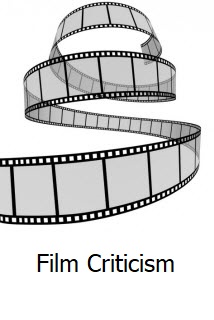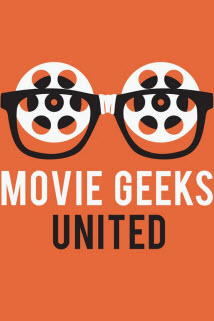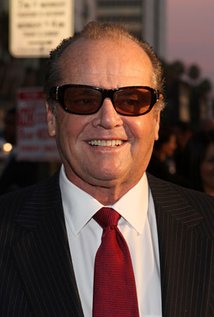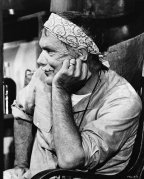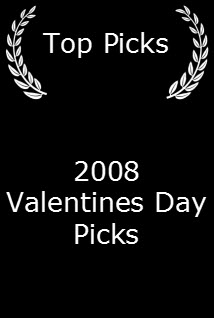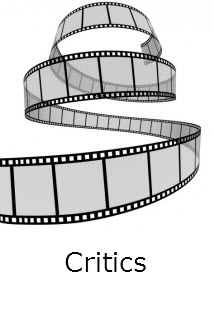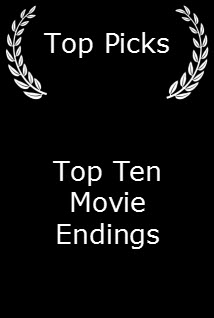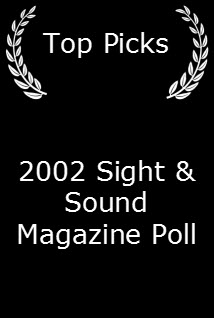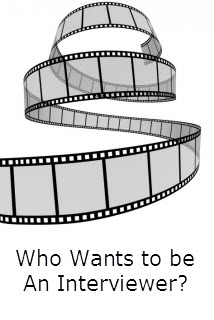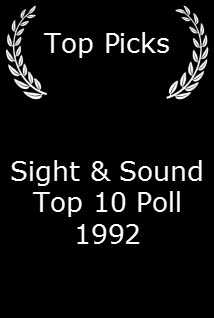Intriguing or Nonsensical? A Personal Reaction to Movie Polls (1992)
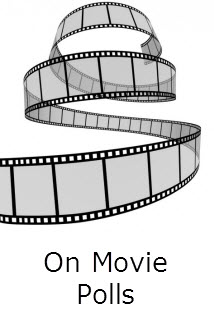
Content by Tony Macklin. Originally published on August 7, 2012 @ tonymacklin.net.
This is the time of lists.
As one century comes to a close, and another begins, lists proliferate. They are either as intriguing as fireflies or as noxious as locusts, depending on one's point of view. I lean toward the fireflies view.
Since film has been one of my passions for the last half of the century, I want to put in my 2,000 cents' worth. Recently the American Film Institute sent me a ballot to vote for the 100 Funniest American movies of all time. They sent me a list of 500 films from which I was to select up to 100. The AFI went on to ask me to "rank the top five funniest movies in order (#1 being your choice for America's funniest movie)."
I started this juror shtik in 1972 when I voted for the best films of all time for Sight and Sound, the estimable British publication. Voting is a very subjective exercise. In 1992 (Sight and Sound's poll is once a decade) five of my choices for the best ten had changed, although Citizen Kane had stayed on the top of my list, as it had on many lists, so at least I had some sense of tradition and stability.
I admit I'm ambivalent about polls. Although my academic colleagues are indifferent, the Public Relations office at my place of work loves my participation in polls. Election sells - especially at this point in the millennium. There are some negatives about voting - too much self-indulgence and perhaps pretension. But for me the positive outweighs the negative. The process allows me to revisit my past, and most of us like to bask in recovered memories - childhood's charms of innocence and experience. The things that made us.
Selecting films that were meaningful to us allows us to pay homage to films others don't. And it allows common ground. In the 1992 Sight and Sound poll, I listed Sam Peckinpah's The Ballad of Cable Hogue. Lo and behold! A Japanese critic also listed Peckinpah's film in his best ten. Ballads across the ocean. As we know, film makes odd couples. That two critics worlds apart made the same idiosyncratic choice affirms the connective power of film.
Film is a very personal experience. Last spring in the American Film Institute's poll of the greatest actors of all time, I put Chaplin and Ingrid Bergman on the top of my list, but I also wrote in the name of Huntz Hall, who engaged me 48 times as a youth watching him cavort as Sach of the Bowery Boys. Maybe he's not one of the hundred greatest actors, but he's in the Pantheon in my heart. I don't know whether or not any other voter included Huntz; I hope so.
I learned about film being personal in the theaters of my youth. Later I read humanist critic James Agee, who found personal truth in movies. His film criticism was an act of love. I was fully converted.
When the ballot for the AFI's "100 Years 100 Laughs" arrived, I was tested. The greatest comedies aren't necessarily the funniest films, and the funniest scenes often are not in the funniest movies. But I decided to try to vote in the spirit of the ballot. It emphasized "the subjective and historical nature of comedy" and declared "AFI compiled the following films with a goal to be as inclusive as possible." I thought they erred by including The Candidate on their list; it's an effective political satire, but the funny moments are scant. But if they wanted inclusive, I'd give them inclusive.
I also wondered about their choices of animated films. The AFI list only had two Disney animated films, Alladin and Toy Story, but not Cinderella, Dumbo, or Fantasia.
The film I laughed outioud at the most is not an American film; it is the Czechoslovakian film The Firemen's Ball, directed by Milos Forman. Forman came to the United States and was awarded two Academy Awards for directing One Flew Over the Cuckoo's Nest; and Amadeus. He is presently returning to his humanist comic roots in directing Man on the Moon about Andy Kaufman. But I couldn't vote for the film I found the funniest because The Firemen's Ball is a foreign film.
Still, voting was a treat. I voted for seven Buster Keaton films and six Chaplin films. I voted for four films directed by George Cukor, three by Howard Hawks, four by Billy Wilder, and four directed by Robert Altman. My critical career parallels Altman's directorial career, and his iconoclasm appealed to me. It was an opportunity to pay homage to Altman. Indirectly I was also able to salute J.D. Salinger, since Dear Ruth was on the AFI's list. It starred William Holden and Joan Caulfield and may have provided Salinger with the name of his young protagonist in The Catcher in the Rye. Ghost Chasers was on the list, so I didn't have to add a Bowery Boys movie.
My top two choices were almost reflexive. I chose Keaton's The General first, and Chaplin's The Gold Rush second. Great comedies by masters. My third choice was Billy Wilder's Some Like It Hot, a wonderful romp with Jack Lemmon, Tony Curtis, and Marilyn Monroe. Fourth on my list was Stanley Kubrick's outrageous but cerebral satire Dr. Strangelove, a film of cosmic absurdity.
Now I could indulge myself. As my fifth choice I selected Abbott and Costello's The Time of Their Lives (1946), in which the two comic actors portray ghosts from the Revolutionary War era who were condemned as traitors and who come to the modern world. It is a hoot - at least in my memory.
There are other films precious in my memory bank. I have a special fondness for Disney's animated film, The Three Caballeros, since it was one of the very first films I ever saw. Any Bowery Boys film - as long as Sach weaves his addled spell. Abbott and Costello, Martin and Lewis, Crosby and Hope, Blondie and Dagwood, Ma and Pa Kettle.
As an adult of sorts I laughed a lot at Bogdanovich's What's Up Doc? I related to 1983's The Christmas Story, since as a boy I had lusted after a Red Ryder BB rifle. Jean Shepherd got his; I never got mine. Willie Wonka and the Chocolate Factory which my kids loved. I subsequently was chastened when Gene Wilder told me that he was disappointed with it. And Avanti! (1972) a romantic comedy I don't need to go into at this time.
I wanted to write in seven films that were not on AFI's list, but the poll only allowed five write-ins. My seven were Chaplin's Monsieur Verdoux, which Agee loved; The Flim-Flam Man with an engaging comic performance by George C. Scott as an incorrigible conman; Weekend at Bernie's, slapstick that is actually funny; Let It Ride, a horse player's irrepressible comedy; Go West, Keaton, enough said; Limelight, the only film that united the giants of comedy Chaplin and Keaton; and of course The Time of Their Lives.
Which two of the seven should I delete? Most people probably would suggest The Time of Their Lives; it only received 2.5 stars in the VideoHound's Golden Movie Retriever guide. But for me it was one of the seminal movie experiences of my young life. Before taking part in the poll, I'd forgotten the effect it had on me. Sitting in a movie cave, eating my Raisinettes or Tootsie Rolls, I had been transformed by The Time of Their Lives. It introduced me to the heady amalgam of imagination, history, absurdity, and comedy.
It was what making the list was all about. Pauline Kael lost it at the movies; Agee found it at the movies.
Movies help form us. My best boyhood friend admired Danny Kaye; I loved the Bowery Boys and Abbott and Costello. We were destined to go separate ways. He's a court jester, and I'm an antic presence. Going to the movies is about having dreams. Escapist entertainment can be liberating.
The best thing about the list I did for AFI was that it brought the kid in me back to life. It made me smile. I was a child again chasing fireflies in the darkness.





